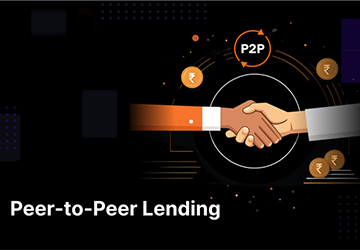When to Consider a Reverse Mortgage
Reverse mortgages are considered a valuable financial tool for seniors who want to tap into their home equity. As traditional income sources like pensions and savings may fall short of covering all expenses in retirement, a reverse mortgage can offer a much-needed financial cushion. This financial product allows homeowners to convert part of the equity in their homes into cash while still retaining ownership and the right to live in their homes.

Let's discuss the benefits of reverse mortgages, outline the eligibility requirements, and help you decide if a reverse mortgage is right for your situation. By the end, you should have a clearer picture of whether this financial tool is for a more secure and comfortable retirement.
Benefits of Reverse Mortgages
The main benefit of reverse mortgages is the possibility of transforming home equity into cash without selling your property; this can bring much-needed financial relief to retirees with fixed incomes. Instead of paying monthly mortgage payments, you will receive funds from the lender, which can assist in paying for living expenses, medical bills, or house upgrades.
Another significant benefit of reverse mortgages is that the funds received are generally tax-free; this can be advantageous compared to other types of income, which might be subject to taxes. Moreover, the money from a reverse mortgage does not affect Social Security or Medicare benefits, making it a more attractive option for many seniors.
Reverse mortgages also offer flexibility in how you receive your funds. You can opt for a lump sum, monthly payments, a line of credit, or a combination of these options. This flexibility allows you to tailor the mortgage to your financial needs and goals.
Additionally, reverse mortgages come with a non-recourse clause; you or your heirs will never owe more than the home's value when the loan is repaid. This benefit of reverse mortgages ensures that your other assets are protected.
Reverse Mortgage Eligibility Requirements
Before considering a reverse mortgage, it is essential to understand the eligibility requirements. The primary requirement is age. You must be at least 62 years old to qualify. This age requirement ensures that reverse mortgages are available only to those nearing or in retirement.
Another essential reverse mortgage eligibility requirement is homeownership. You must own the home outright or have a significant amount of equity. If you still have a mortgage, you need to pay it off; this ensures that the lender has a secure claim on the property.
The home itself must also meet specific reverse mortgage eligibility requirements. It must be your primary residence, meaning you live there most of the year. Eligible property types typically include single-family homes, two-to-four-unit properties where the borrower occupies one of the units, and some manufactured homes that meet Federal Housing Administration (FHA) standards.
Financial assessment is a significant reverse mortgage eligibility requirement. Lenders evaluate your income, assets, and expenses to determine whether you can afford ongoing property costs, such as taxes, insurance, and maintenance. This assessment helps protect both the borrower and the lender.
Lastly, participating in a HUD-approved counselling session is mandatory. This reverse mortgage eligibility requirement ensures that you fully understand the terms, costs, and implications of the reverse mortgage. The counselling session aims to provide unbiased information and help you make an informed decision.
Is a Reverse Mortgage Right for You?
Determining if a reverse mortgage is right involves evaluating your financial situation, goals, and alternatives. Understanding the benefits of reverse mortgages and meeting the eligibility requirements is only part of the equation.
First, consider your financial needs. Are you struggling to cover living expenses, medical bills, or home maintenance? If so, a reverse mortgage might provide the necessary financial relief. The ability to receive tax-free payments and protect your other assets can make a reverse mortgage an attractive option.

Next, think about your long-term plans. Do you intend to stay in your home for the foreseeable future? If you plan to downsize or move, there may be better choices than a reverse mortgage. The loan becomes due when you sell the home, move out, or pass away, so it is crucial to consider your future living arrangements.
It's also necessary to weigh the costs associated with a reverse mortgage. While the benefits of reverse mortgages are substantial, they come with fees and interest. Origination fees, closing costs, and mortgage insurance premiums can add up. Over time, these costs can reduce the equity left in your home.
Consider your heirs as well. A reverse mortgage affects the inheritance you leave behind. The loan must be repaid when you pass away, typically through the home sale. If leaving your home to your heirs is a priority, discuss this with them and explore other financial options.
Additionally, think about alternative solutions. Downsizing, taking out a home equity loan, or refinancing your mortgage might be viable alternatives.
Finally, seek professional advice to get a comprehensive view of your options. They can help you understand the benefits of reverse mortgages, navigate the eligibility requirements, and decide if this financial tool aligns with your goals.
Conclusion
Deciding when to consider a reverse mortgage is a significant financial decision. The benefits of reverse mortgages can provide substantial monetary relief, especially for those struggling to cover living expenses in retirement. However, understanding the reverse mortgage eligibility requirements and evaluating if a reverse mortgage is right for your specific situation is equally important.
By carefully weighing the pros and cons, considering your long-term plans, and seeking professional advice, you can decide whether a reverse mortgage is right for you. With the right approach, a reverse mortgage can be a valuable tool to enhance your financial stability and peace of mind in retirement.





